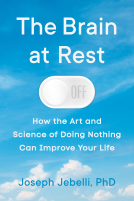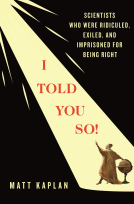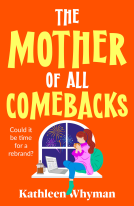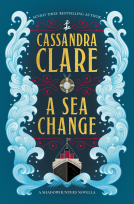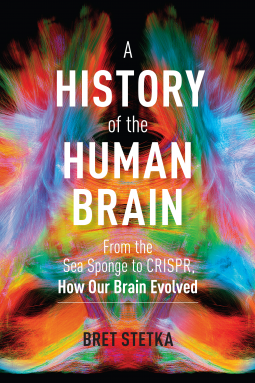
A History of the Human Brain
From the Sea Sponge to CRISPR, How Our Brain Evolved
by Bret Stetka
This title was previously available on NetGalley and is now archived.
Send NetGalley books directly to your Kindle or Kindle app
1
To read on a Kindle or Kindle app, please add kindle@netgalley.com as an approved email address to receive files in your Amazon account. Click here for step-by-step instructions.
2
Also find your Kindle email address within your Amazon account, and enter it here.
Pub Date Mar 16 2021 | Archive Date Jun 16 2021
Talking about this book? Use #AHistoryoftheHumanBrain #NetGalley. More hashtag tips!
Description
“Crack open this book and take a read. You will be transported, illuminated, and delighted.” —Psychology Today
Just 125,000 years ago, humanity was on a path to extinction, until a dramatic shift occurred. We used our mental abilities to navigate new terrain and changing climates. We hunted, foraged, tracked tides, shucked oysters—anything we could do to survive. Before long, our species had pulled itself back from the brink and was on more stable ground. What saved us? The human brain—and its evolutionary journey is unlike any other.
In A History of the Human Brain, Bret Stetka takes us on this far-reaching journey, explaining exactly how our most mysterious organ developed. From the brain’s improbable, watery beginnings to the marvel that sits in the head of Homo sapiens today, Stetka covers an astonishing progression, even tackling future brainy frontiers such as epigenetics and CRISPR. Clearly and expertly told, this intriguing account is the story of who we are. By examining the history of the brain, we can begin to piece together what it truly means to be human.
Available Editions
| EDITION | Other Format |
| ISBN | 9781604699883 |
| PRICE | $24.95 (USD) |
| PAGES | 264 |
Average rating from 14 members
Featured Reviews
When it comes to the brain, I think everyone has a curious interest into its origins, it’s evolution and how we’ve become the people we are today. To those people I say: this book is your perfect read! The history of the brain was just thoroughly brilliant, in the topics that were covered, the way it was written and how fantastic and interesting the author manage to convey this amazing subject.
The first section of the book - the animal collection - was like a brilliant stroll through our history, relating to how life may have started and through our evolutionary beginnings to the start of brain formation. How we may have started to diverge from primordial origins and how it’s benefited us today. It’s so interesting looking back throughout our timelines and howwe’ve got to be where we are.
Section two was all about our social brains and how this may have affected our early brain origins. From learning to live in social structures and drawing inferences between ape social structures and their brains to ours. We are a highly social species and it was incredibly interesting to see that represented in our brains. I really enjoyed learning more about the social tendencies and behaviours of bonobos and chimps and how distinct they could be from each other at times. And reading about the effect of different genes and how they could affect our brains and personalities was mind blowing!
The final section, on our diet and the consequential effect on our brains, the future evolution of our brains and where it might take us, the influence of societal structure as well as new and up coming technologies drew to the conclusion an utterly fantastic range of knowledge and information on this fascinating subject
I love how the author has written this book, using language to easily disseminate complex research and information in easier to understand ways and ones that are compelling and split into bite size chunks. I really wish I had had this book when I was studying my undergraduate degree, as there were some concepts I never understood and could never find written in a way that wasn’t confusing when I researched it! This book definitely delivered that.
Bret was great at explaining things in a succinct way and in ways that actually made sense! It’s a perfect balance between in depth science and the authors great writing style that doesn’t leave you feeling too overwhelmed with all the information covered. And there was a lot of information in here. I can’t explain how much I learnt! I love that it contains up to date and recent, new research and there’s plenty of diagrams and pictures to supplement the main text - definitely a benefit for a book like this one. The added visual aspect was great.
It flowed brilliantly and there was the inclusion of plenty of renowned scientists in their field and their research in this book which really made for an overall, well rounded brilliant read.
 Beth C, Librarian
Beth C, Librarian
A moderately well written book with plenty of information. Would recommend to people looking for titles on the subject.
<I>A History of the Human Brain</I> is a breezy read that deftly pulls readers through vast bodies of popular science journalism, scientific literature, and whole fields of science. Bret Stetka demonstrates a great ability to digest and synthesize scientific information and conveys it clearly and convincingly to readers. He does so in a mostly balanced way, describing ongoing debates in the fields of evolution, genetics, and brain science fairly well.
I really enjoyed the work, though I found a lot of the information to be familiar or unsurprising (I have a strong background in related fields). If anything, I wished the work had expounded on many of the ideas, issues, and phenomena described. I felt enriched by the book because I was familiar with the works of many of those who Stetka referenced heavily: Pinker, Harari, Wrangham, Tattersall, etc. However, I worry readers without strong backgrounds in science may walk away from this work without as full of a picture, and those with strong backgrounds will feel unchallenged. Of course, it is hard to strike a perfect balance.
Overall, Stetka has put together a nifty, concise work of popular science on the origins of the human brain. It is worth checking out.
 Tiffany T, Educator
Tiffany T, Educator
Stetka's work is easy to understand, well-researched, and thorough even though it is not a long work.
The book is divided into three logical parts, and it makes for a quick read despite covering a pretty difficult topic. The images included with the text enhanced rather than distracted as some scientifically minded works tend to do for me.
I enjoyed the inclusion of ongoing debates within the scientific community relating to the topic or time period being discussed in each section. Stetka seems to have a way of condensing complicated science so that the general public can understand what is being discussed.
I would recommend this work for anyone interested in how humans have gotten to where we are today, to general readers with a basic interest in history, and for those willing to have an open mind and explore how our brains have grown, changed, and adapted into what they are today.
A History of the Human Brain: From the Sea Sponge to CRISPR, How Our Brain Evolved
Bret Stetka
Publisher: Timber Press
ISBN: 9781604699883
Publication date: 03/16/2021
Pages: 272
**This is an ARC provided by NetGalley for book reviews.**
A popular science book about the evolutionary history of our brain written by Bret Stetka, a non-practising physician, science journalist, writer and contributor to Scientific American and NPR. Readers of Sapiens will find this a breezy read which brings together anthropology, primatology, zoology, natural history, sociology, psychology, and a bit of genetics in the mix to understand how the brain evolved from its primordial state.
The book is divided into three parts namely, the anatomical biography, the social wiring, and the cultural makeup that have led to the evolution of the human brain. The first part was a lovely trip down memory lane for me personally. From the humble origins of the sponges in the oceans possessing proteins very similar to the ones found in our brains and nervous system to the unique nine-brained octopus, we see the gradual evolution of the components of a nervous system as it rose in the oceans in fishes and migrated to the lands in higher animals. While navigating this path Stetka presents us with the latest and updated paleontological, geological, and genetic data that provide us clues about this journey. The book’s strong point lies in its treatment of primate evolution and the similarities and dissimilarities we have with the apes. Here the reader will find an exhaustive account of the discovery of hominin fossils and the evolution of Homo sapiens. Are we so different from our Neanderthal and Denisovan cousins? The first part leaves you with a respect for the rich history of our ancestors and the evolution that led to our present anatomy.
Ethology takes up the mantle in the second part of this book. How altruism, cooperation, violence, grooming, communication, tool-making, and language in social groups have played roles in shaping primate and human brains. For example, we have physiological similarities with monkeys and apes such as the presence of similar areas like Broca’s and Wernicke’s but the complexity and plasticity of our speech centres make us unique in processing and producing sophisticated language. The final section of the book traces the effects of dietary habits along with the use of fire in sprucing up the organ inside our skulls. This is the weakest section of the book and a hurried conclusion leaves the reader wanting for a bit more focused end to the book.
I recommend the book for anyone who needs a primer in neurobiology, behavior science, and primate biology. It presents the latest findings in evolutionary neuroscience and is well-written by a seasoned science writer. Despite the weak last chapters and conclusion it is unique in its format of bringing many subjects together in shaping the biology of our unique brains.
 Katie E, Reviewer
Katie E, Reviewer
Thanks to Netgalley and Timber Press for a copy in exchange for a fair and honest review.
A History of the Human Brain is an accesible and fun look into how the brain evolved. Filled with history and science, this book kept my interest and curiosity stoked. The scientific info isn't too much for the layperson, nor is it oversimplified. Stetka offers vivid examples for the reader to "see" the behavior he discusses. The only thing missing is a diagram of the human brain, which would have been helpful to reference. I know little of neuroscience, but I came out of this book feeling like I'd learned a great deal without feeling like I'd suffered through a hard lesson.
I'd recommend A History of the Human Brain to anyone with a scientific interest or a curiosity about how humans work.
A very good book about the brain. It puts a scientific light on how brain organises inputs from environment into useful patterns.
It starts right from the history and covers all aspects of neural development including anatomy and physiology.
Written in a flowing and interesting prose. It helps the non scientific reader to understand the complex organ of humans.
A very good science book. Highly recommended.
 Reviewer 725763
Reviewer 725763
(This is my honest and voluntary review of the ARC I received from NetGalley.)
This book is an astonishing accomplishment. It traces the development of the human brain from single-celled organisms to present-day questions such as designer babies and artificial intelligence.
There's a lot we don't know, and the author presents competing theories on subjects such as when symbolic language first evolved, and chicken-and-egg questions like whether tool use was a cause or an effect of bigger brains.
I wish the author had been more careful about using "human" instead of "man" in gender-neutral contexts. I also wish he had avoided the word "fiction" when referring to the creation story in the Bible. It just seemed unnecessary to refer scornfully to the deeply held beliefs of some of his readers, whatever his own personal attitude toward religion might be. This lack of inclusiveness marred an otherwise brilliant book. (These issues may have been corrected in the published version.)
If you have any interest at all in human evolution or neuroscience, this book is a must-read.
 Reviewer 43423
Reviewer 43423
Stetka has sifted through and synthesized vast amounts of material—produced by physical anthropologists and primatologists, but also by palaeontologists, archeologists, historians, evolutionary biologists, linguists, geneticists, and more—to tell how various factors, including environment, climate, diet, genetics, and social organization have impacted the development of humans across the eons. The author starts with the dawn of life on earth and a discussion of our earliest ancestors: eukaryotes (simple organisms with DNA protected within a nuclear envelope) and sea sponge-like creatures who used proteins as chemical messengers that resemble our neurotransmitters. After ambitiously working through the many factors that influenced and changed the characteristics of hominins (the species regarded as human, directly ancestral to humans, or very closely related to humans), the author ends the book by considering techniques for gene editing, which will likely be increasingly employed in the future to alter human beings.
The ideal reader of this book would come equipped with a basic knowledge of physical anthropology and genetics. I was not the ideal reader. I occasionally became quite overwhelmed by the detail—which is not to say I didn’t learn a great deal. Furthermore, I was expecting a more neuroscience-focused book and this was one dominated by the work of primatologists. The behaviour of chimps, bonobos, and our ancestors figured more prominently than the brain per se. When Stetka does directly address the brain, his material is mostly supportive of the factors leading to its enlargement.
Readers of Jared Diamond are likely to be satisfied by this text, but it lacks the narrative-drive and accessibility of Yuval Noah Harari’s phenomenally successful SAPIENS.
Thank you to Net Galley and the publisher for providing me with a digital ARC.
Readers who liked this book also liked:
Kathleen Whyman
General Fiction (Adult), Humor & Satire, Women's Fiction
